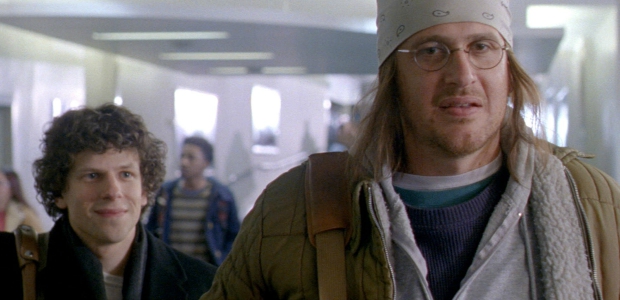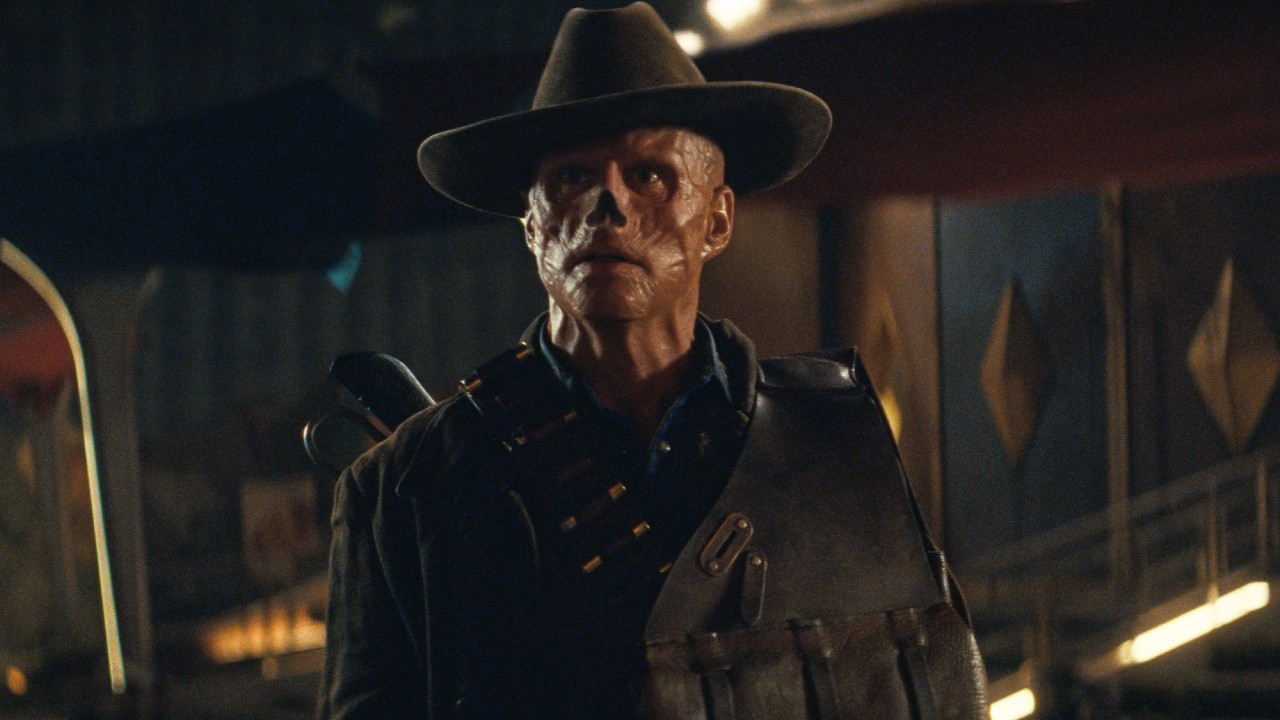Director James Ponsoldt’s The End Of The Tour is a special kind of film. In the spirit of titles like 12 Angry Men, Who’s Afraid of Virginia Woolf? and No Exit, it doesn’t have any big set pieces, MacGuffins, or big plot devices, but instead is driven forward entirely through dialogue - with a central relationship ever evolving as the characters, who are metaphorically manacled together, both repulse and relate to each other. Of course, the movie just following this path isn’t special; what’s special is how the simple yet immensely complex approach manages to be so incredibly engrossing and compelling.
The characters I’m referring to are David Lipsky (Jesse Eisenberg), a reporter working on a piece for Rolling Stone; and David Foster Wallace (Jason Segel), the famed author who is portrayed in the movie at the height of his popularity following the release of his post-modern classic, “Infinite Jest.” Lipsky begins the movie convincing his editor (Ron Livingston) to let him write a piece about the buzzed-about writer, and before long he finds himself propelled into the winter-struck Midwest, first seeing Wallace standing in front of his house with his two rambunctious dogs running around in snow that comes up to the bandana-sporting writer’s knees. It takes half a second to recognize Wallace’s shyness and introversion – which comes as a great and absorbing contrast to Lipsky’s mix of confidence and awe.
The relationship blooms fruitfully in their early conversations, as Lipsky begins digging into who Wallace is – the author ever so slowly pulling back his curtain to open up about his deep insecurities and self-consciousness, philosophy, obsessions, and passions (all so fascinating that my pen could barely keep up with my compulsion to capture every word in my notebook for later reflection). The two men stay up late and lose track of time touching on everything from children to Wallace’s goofy love of Alanis Morissette – but this is only the first night of their relationship. The next morning they catch a plane to Minneapolis so that Wallace can finish the book tour referenced in the film’s title, and it’s over the course of this trip that they begin to look differently at one another – questioning each other’s motivations and honesty, testing sensitivities, and punching sore spots.
The sharp, deeply realistic, and powerfully honest dialogue in Donald Margulies’ End Of The Tour screenplay does greatly benefit from the transcription-based source material that is David Lipsky’s non-fiction book “Although Of Course You End Up Becoming Yourself,” but his and James Ponsoldt’s work honing and shaping the storyline in the adaptation is nothing short of masterful. As Wallace and Lipsky go on their road trip locked together, a perfect ebb and flow is crafted in the tone of their conversation and rapport. Passive-aggressive and stilted responses get traded as each spends time trying to work their relationship back to a more stable, positive place, and their growing conflict constantly reveals more of who each of them really are (both to each other, and to the audience). It builds at a perfect pace, never drags, and comes together as an incredibly satisfying narrative.
Even with the greatest script ever written, a film like The End Of The Tour doesn’t work unless it features the right actors – so you can imagine that the film honestly benefits from some of the best performances we’ve seen from both Jesse Eisenberg and Jason Segel (very high praise in my book). Playing something entirely different than the mealy-mouthed nerd or egotistical jerk roles that he’s become known for, Eisenberg brings an interesting confidence and complexity to David Lipsky, and actually adds depth to the character through his physicality and mannerisms as the nature of his approach to David Foster Wallace changes. Meanwhile, Segel just becomes the late sheepish-but-brilliant author from the moment he arrives on screen, spotted through a snow-obscured windshield entirely underdressed for the frigid temperatures. As it should be, the actor makes Wallace’s genius look entirely natural that it almost bounces back to phony – but of course, that just winds up being a conflict point as Lipsky finds himself lost trying to decipher if the man is real or just saying what he wants to hear.
With both Smashed and The Spectacular Now, James Ponsoldt has spent recent years proving that he is one of the best up-and-coming filmmakers in the industry, and The End Of The Tour seals the deal. It is his most fascinating, impactful, and phenomenal work to date. You’ll be impressed by the approach; awed and spellbound by the philosophy; and immediately compelled to seek out more about the brilliant and enigmatic subject at its center.
Your Daily Blend of Entertainment News

Eric Eisenberg is the Assistant Managing Editor at CinemaBlend. After graduating Boston University and earning a bachelor’s degree in journalism, he took a part-time job as a staff writer for CinemaBlend, and after six months was offered the opportunity to move to Los Angeles and take on a newly created West Coast Editor position. Over a decade later, he's continuing to advance his interests and expertise. In addition to conducting filmmaker interviews and contributing to the news and feature content of the site, Eric also oversees the Movie Reviews section, writes the the weekend box office report (published Sundays), and is the site's resident Stephen King expert. He has two King-related columns.

